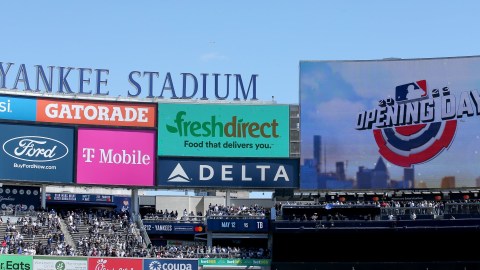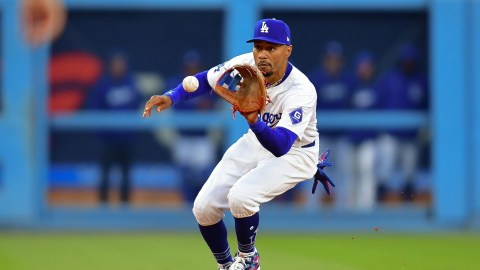Did you miss that big play everyone's talking about? No problem, YouTube it.
Well, if the Stop Online Piracy Act (SOPA) passes, sports fans won't have that luxury anymore.
That's because the bill, which aims to put an end to Internet piracy, would hold any website that features copyrighted material responsible for said material if the intellectual property owner elects to take action. In other words, a record label, a movie studio or even a sports league could notice a 30-second clip on a website and then take action against that site, very serious action.
Gizmodo.com provided an example of potential ramifications if Warner Bros. found that a site in Italy was torrenting one of its movies. The studio then could "demand that Google remove that site from its search results, that PayPal no longer accept payments to or from that site, that ad services pull all ads and finances from it, and — most dangerously — that the site's [Internet Service Provider] prevent people from even going there."
The SOPA author, Rep. Lamar Smith (R-Texas), says he will remove the ISP provision, but the bill still is serious stuff. The craziness is heightened even more by the relative ease with which an intellectual property owner (such as Warner Bros.) could take action. All it would take would be a letter from the owner of the copyrighted material saying there's a "good faith belief" that a particular site has infringed on its content, and immediate action would then be taken.
This has severe consequences for websites that pride themselves on being a home for user-generated content, because suddenly those websites are in jeopardy of having serious action taken against them if any user posts copyrighted material. Facebook, YouTube and Twitter would be among the websites forced to monitor uploaded content even more, because one 30-second clip could have serious repercussions for the site as a whole.
Sports fans are a passionate breed, with even the most casual fan usually left wanting more. Sites on which material can be shared person-to-person satisfy that hunger, stimulate further discussion and heighten the amount of enthusiasm one possesses for a particular sport or team. Crushing the ability to share such content — by threatening to shut down some of sports fans' favorite websites — will show how far we've regressed as a culture despite our technological advances.
For as much flack as we, as a society, often receive for being too consumed by the Internet, the fact is that SOPA would hinder our ability to live free. The Internet shouldn't consume a person's life, but then again, why should one be forbidden from accessing some of the Internet's most unique and best features because a bill is too heavy-handed in its pursuit of stopping piracy?
Websites like Facebook, YouTube and Twitter often contain material that is copyrighted, but to say they "engage in, enable, or facilitate" copyright infringement, and therefore make them constantly susceptible to legal action, would be unjust.
The Digital Millennium Copyright Act (DMCA), passed in 1998, says that any site that's hosting or linking to pirated material must promptly take down the offending material once notified. The DMCA is a much more reasonable approach. Piracy is wrong, but taking punishment a step further by threatening immediate action on websites without prior notice is extreme.
There's also the lingering notion that SOPA could threaten free speech and have serious technological repercussions regarding the Internet. Additionally, there's the potential for higher Internet risks, as people seek ways around the bill, at which point they may stumble upon malicious websites.
That security risk is even more threatening for sports fans, as many will still look for highlights of that big play everyone is talking about at the water cooler. In doing so, they could find themselves in serious cyber danger (identity theft or credit card fraud).
And when it comes to reliving history — whether from an official video clip or unsteady footage from a personal camera up in the nosebleed seats — we can forget about it.
The beauty of the way the Internet is currently policed is that parents no longer have to say to their kids, "If only you could have seen 'Player X' play." They can actually show them, allowing for a glimpse at how the sports landscape has changed.
The idea of stopping further piracy is understandable, but at what cultural costs?
Photo via YouTube screengrab




